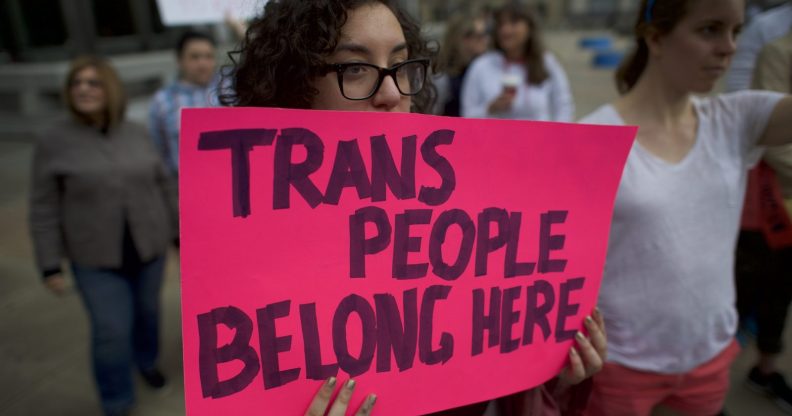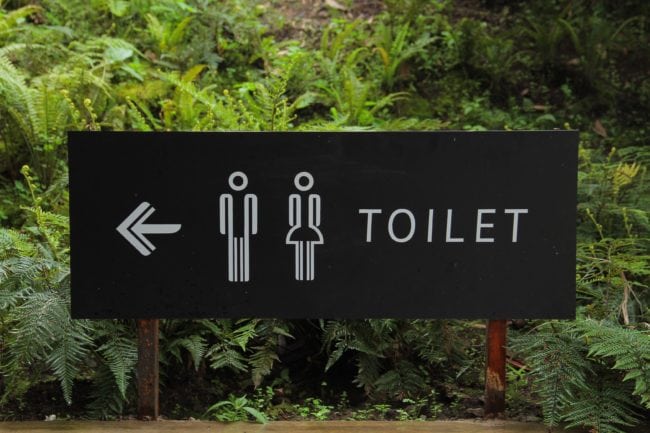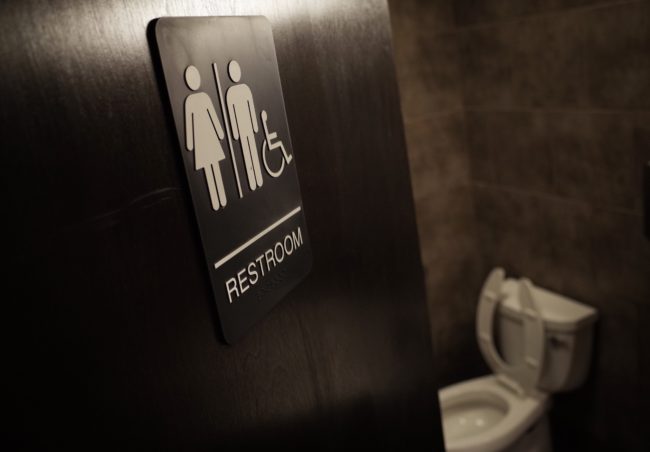Transgender Indian woman to make national bathrooms appeal

Protestors during a rally against the trans bathroom bill in Philadelphia, 2017. (Mark Makela/Getty Images)
A transgender Indian woman, who previously appealed to her university to build bathrooms for transgender students, is now appealing to government officials to have transgender bathrooms built across the country.
Dhananjay Chauhan Mangalmukhi became Punjab University’s first openly trans student two years ago, however quickly ran into difficulty in using the institution’s bathrooms. She wasn’t allowed to use the women’s bathroom, and when she used the men’s, she was bullied and harassed.

A bathroom sign (Creative Commons photo/Hafidz Alifuddin)
She wrote a letter to the university’s vice-chancellor asking for separate bathrooms to be built for transgender students. To her surprise, the appeal was granted.
Now, emboldened by the country’s Supreme Court’s momentous ruling to decriminalise gay sex, Dhananjay is taking her campaign nationwide, and asking government officials to build bathrooms for transgender people all across India.
Dhananjay, who is now the director of an LGBT+ advocacy group called Saksham Trust, said that transgender people often experience harassment when trying to use public toilets in India.
She recently said that, when trying to use a public toilet, she was not allowed to enter by women in there. When she tried to use the men’s, they laughed at her.
She has been vocal about transgender rights in India in the past. She told hindustantimes.com that she applied for her MA course after Punjab University included a “third gender” option on its admission form.
She also told them that “harassment was common” and that her gender identity was often the subject of jokes from other students.

(MANDEL NGAN/AFP/Getty Images)
Dhananjay also said that people often approached her on campus and assumed she was a sex worker, and that she had to explain to them that she was a student there.
Her campaign for more bathrooms across India for transgender people comes in the same week as the country’s Supreme Court decriminalised gay sex.
The five judges in the court were unanimous in their decision, with Chief Justice of India, Dipak Misra, saying that “any consensual sexual relationship between two consenting adults – homosexuals, heterosexuals or lesbians – cannot be said to be unconstitutional.”

